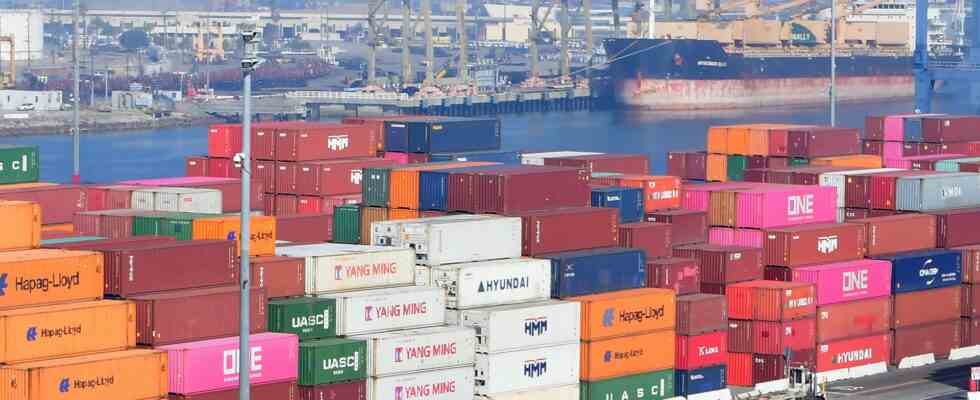Status: 04/19/2022 3:57 p.m
The International Monetary Fund has lowered its forecast for global economic growth this year to 3.6 percent. At the same time, high inflation rates are to be expected. The main reason is the consequences of the Ukraine war.
The consequences of the Ukraine war are clearly slowing down the recovery of the global economy this year. This is the conclusion of the International Monetary Fund (IMF) in its updated economic forecast. According to this, the world economy will grow by 3.6 percent this year – that is 0.8 percentage points less than the IMF predicted in January. According to the report, the economic outlook has “significantly deteriorated” because of the Russian attack on Ukraine and the subsequent sanctions imposed on Russia.
The effects of the war will be felt very differently in the states afterwards. For Ukraine itself, the IMF predicts a 35 percent slump in gross domestic product this year. The Russian economy will also slide into a recession. For the current year, the IMF expects a decline in Russian economic output of 8.5 percent and for 2023 a drop of another 2.3 percent.
German economic growth almost halved
But the effects of the war will also be clearly felt in the eurozone as a whole. According to the forecast, Germany’s gross domestic product will increase by 2.1 percent in 2022. This means that economic growth would only be half as strong as the IMF estimated in January, when the organization was still expecting growth of 3.8 percent for Germany.
For the euro zone as a whole, the IMF expects growth of 2.8 percent this year – 1.1 percentage points less than in January. In addition to Germany, Italy, among others, must reckon with an above-average braking effect of the Ukraine war on its own economic output. By comparison, the IMF revised its expectations for countries like France downwards.
High inflation rates expected
The effects of the Ukraine war are likely to be reflected in higher inflation rates. The IMF expects an inflation rate of 5.7 percent this year in the industrialized nations and an increase in consumer prices of 8.7 percent in the developing and emerging countries. Many states are struggling with high inflation, which is why a tightening of monetary policy is imminent.
In the euro zone, the Monetary Fund estimates the inflation rate at 5.3 percent this year. In Germany it could even be 5.5 percent. In some EU countries, such as the Baltic states of Lithuania, Latvia and Estonia, double-digit inflation rates can even be expected.
Forecast with high uncertainty
According to the IMF, the new economic forecast is associated with an unusually high degree of uncertainty. “Growth could slow further, while inflation could beat our forecasts — for example, if sanctions are extended to Russia’s energy exports,” said IMF chief economist Pierre-Olivier Gourinchas. The IMF World Economic Outlook was published on the fringes of the ongoing spring meetings of the IMF and World Bank in Washington.

